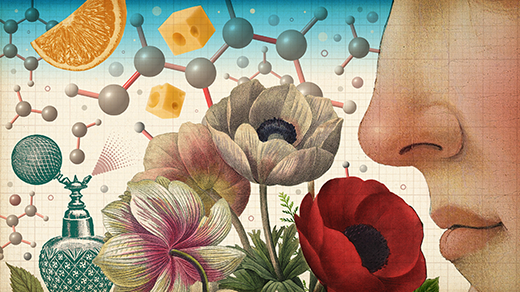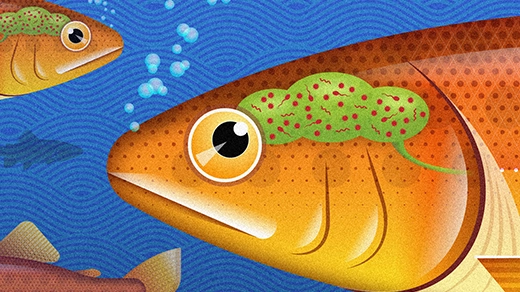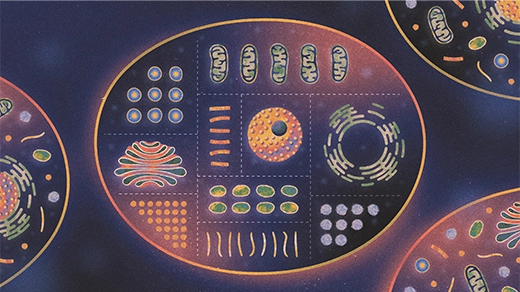What's up in
Bacteria
Latest Articles
The Microbial Masters of Earth’s Climate
A collection of short dispatches from the field of climate microbiology conveys the contributions that single-celled life forms make to our climate system, and how we can work with them to address climate change.
The Cells That Breathe Two Ways
In a hot spring at Yellowstone National Park, a microbe does something that life shouldn’t be able to do: It breathes oxygen and sulfur at the same time.
How Smell Guides Our Inner World
A better understanding of human smell is emerging as scientists interrogate its fundamental elements: the odor molecules that enter your nose and the individual neurons that translate them into perception in your brain.
The Ecosystem Dynamics That Can Make or Break an Invasion
By speedrunning ecosystems with microbes, researchers revealed intrinsic properties that may make a community susceptible to invasion.
The Ocean Teems With Networks of Interconnected Bacteria
Nanotube bridge networks grow between the most abundant photosynthetic bacteria in the oceans, suggesting that the world is far more interconnected than anyone realized.
Fish Have a Brain Microbiome. Could Humans Have One Too?
The discovery that other vertebrates have healthy, microbial brains is fueling the still controversial possibility that we might have them as well.
All Life on Earth Today Descended From a Single Cell. Meet LUCA.
The clearest picture yet of our “last universal common ancestor” suggests it was a relatively complex organism living 4.2 billion years ago, a time long considered too harsh for life to flourish.
Meet the Eukaryote, the First Cell to Get Organized
All modern multicellular life — all life that any of us regularly see — is made of cells with a knack for compartmentalization. Recent discoveries are revealing how the first eukaryote got its start.
Most Life on Earth Is Dormant, After Pulling an ‘Emergency Brake’
Many microbes and cells are in deep sleep, waiting for the right moment to activate. Biologists discovered a widespread protein that abruptly shuts down a cell’s activity — and turns it back on just as fast.








